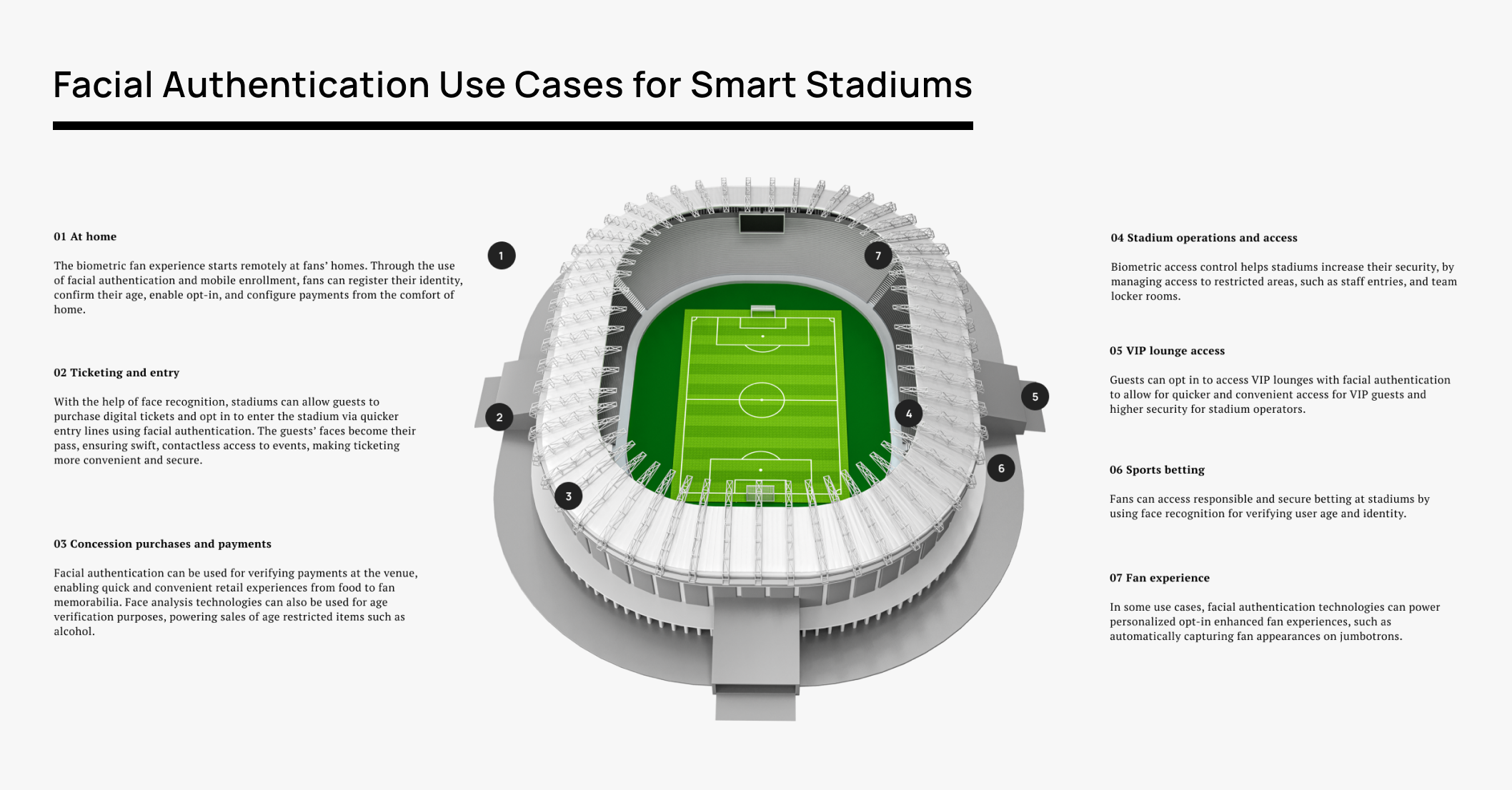AI, Facial Authentication, and the Future of Smart Stadiums
By Tania Salarvand, Senior EVP of Strategy & Growth at Globant

Companies striving to ensure customer satisfaction is a time-honored practice. However, the introduction of transformative technologies, including virtual reality, augmented reality, artificial intelligence (AI), facial authentication, and sensors, has enabled companies to swiftly revolutionize the customer experience. In Globant’s collaborations with sports organizations such as the LA Clippers and LaLiga, these kinds of innovations have significantly reshaped the sports and entertainment fan experience.
From the moment a guest begins their journey to a smart stadium until they return home post-event, they are interacting continuously, both directly and indirectly, with cutting-edge technology applications. For instance, before reaching the stadium, a dedicated mobile app can offer the best route or transportation option, along with the optimal departure time to ensure timely arrival. Similarly, the app can facilitate a quick exit and assist in finding transportation home.
Upon arrival, the app, in conjunction with embedded sensors, can streamline parking by guiding drivers to available spots. Inside the stadium, AI and biometrics can expedite entry, making ticket verification instantaneous and reducing security lines through facial authentication. Extending biometric capabilities to in-stadium transactions for food, beverages, merchandise, and additional experiences can enhance the potential of the fan experience. With facial authentication, employees can better tailor suggestions to each guest, who can securely pay by merely walking out of the store, thanks to saved payment preferences associated with their biometrics. This can drastically reduce waiting times. AI and facial recognition can enable brands to send personalized offers based on seat location, past preferences, or extend personalized greetings, fostering a stronger connection with guests.
This combination of physical and digital experiences elevates today’s fan experiences in stadiums, making them more immersive and memorable than ever before. Smart stadiums not only offer a seamless, easy-to-navigate environment but also present creative on-the-ground experiences that enhance fan engagement with the event, fostering enjoyable experiences and building loyalty among guests. Hosting brands benefit from increased engagement, loyalty, and the opportunity to nurture relationships post-event.
The smart stadiums market is developing rapidly and, excitingly, is still at the beginning of its evolution. A lot of great concepts to improve the fan experience through technology are being tested today, which simultaneously benefit the leagues, teams, artists, players, and staff. For example, can data on player stats be accessed or viewed by fans, both in the stadium and at home, automatically to make the experience more immersive? How can technology help fans who aren’t able to attend the games really feel like they were a part of the experience?
Can VR technology allow fans to experience the game as a player, or even from the front row? Any brand that wants to create loyalty needs to be dedicated to creating 360-degree physical and digital experiences that are unique to their fans’ demographics, interests, and values.
With smart stadiums, brands will be able to unlock greater business and revenue-building opportunities while fans access more memorable experiences than ever before.

For more information about Globant, please go to globant.com.

Tania Salarvand is Senior EVP of Strategy & Growth at Globant, leading innovation for top clients across industries, focusing on sports and entertainment, hospitality, media, and retail. She is also the leader of Globant’s Hospitality & Leisure Studio focused on reinventing the guest, fan, customer, and crew experiences.